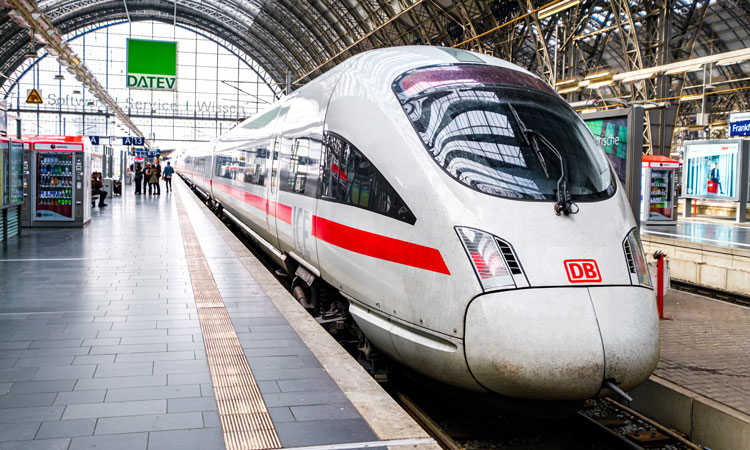Deutsche Bahn exceeds 150 million annual passengers for first time
Posted: 31 March 2020 | Global Railway Review | No comments yet
DB has reported their key figures from the 2019 fiscal year, noting an increase in passenger numbers, record investment in infrastructure, but a decrease in profits.


Deutsche Bahn (DB) has set a new passenger record, transporting 151 million long-distance passengers in 2019.
An additional 2.8 million passengers (an increase of 1.9 per cent) used DB’s ICE and IC trains in 2019 – the fifth consecutive year in which patronage increased. The DB Group’s adjusted revenues rose to €44.4 billion in 2019, an increase of just under one per cent.
With regional rail patronage in Germany also rising in 2019, climbing 1.6 per cent to almost two billion, DB’s overall total rail passenger transport volume rose to a total of 98.4 billion passenger kilometres. DB’s CEO Dr. Richard Lutz, declared: “we are seeing clear signs of a modal shift towards rail, an environmentally friendly mode of transport.”
DB Group are continuing their investment programme, the largest in its history, investing substantially in the rail network, stations and trains. Reflected in this investment, the group’s adjusted earnings before interest and taxes fell by 13 per cent year-on-year to €1.8 billion.
Speaking of the 2019 fiscal year, Richard, stated: “DB’s aim is to substantially increase the performance of rail in Germany. Investment in the future of rail will take priority in the coming years, which will be visible in our bottom line in the medium-term.”
DB’s net capital expenditure rose considerably in 2019, increasing by 41 per cent year-on-year to €5.6 billion – a new record. Gross capital expenditure also rose, with a focus on infrastructure. As before, the group plans are for the lion’s share of the funds to be used to expand and modernise the German rail system, boosting quality and reliability and adding new trains and additional staff.
DB Schenker reported overall positive results for freight and logistics, with all business sectors showing improved figures in 2019, with the exception of air freight. DB Cargo’s transport volume fell by 3.7 per cent year-on-year, attributing a decline in cyclical sectors such as steel and automotive, stating that ‘sustained growth in rail freight transport will still take some time’.
Dr. Levin Holle, DB’s Chief Financial Officer, admitted that the negative economic impact of the coronavirus crisis is still yet to be determined.
OUT NOW: The Definitive Guide to Rail’s Digital Future
The rail industry is undergoing a digital revolution, and you need to be ready. We have released our latest market report, “Track Insight: Digitalisation.”
This is not just another report; it’s your comprehensive guide to understanding and leveraging the profound technological shifts reshaping our industry. We move beyond the buzzwords to show you the tangible realities of AI, IoT, and advanced data analytics in rail.
Discover how to:
- Optimise operations and maintenance with real-time insights.
- Enhance passenger services through seamless, high-speed connectivity.
- Leverage technologies like LEO satellites to improve safety and efficiency.
Featuring expert analysis from leaders at Nomad Digital, Lucchini RS, Bentley Systems and more, this is a must-read for any rail professional.
Related topics
Cargo, Freight & Heavy-Haul, Coronavirus/COVID-19, Infrastructure Developments, Operational Performance







